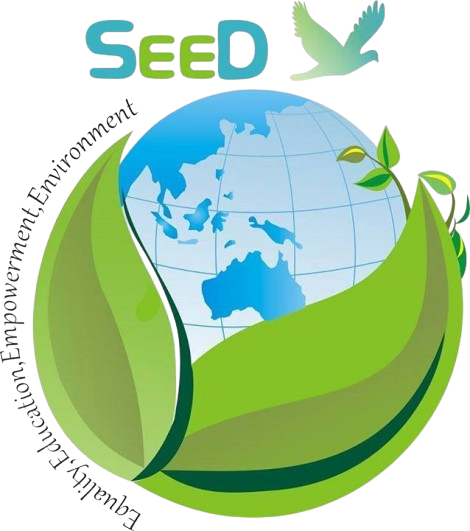






Objective:
The primary objectives of SEED's Global Climate March 2015 were to mobilize grassroots communities across West Bengal to advocate for urgent climate action ahead of the Paris Climate Summit, while simultaneously building local capacity for climate resilience and environmental stewardship.
The initiative aimed to amplify the voices of vulnerable communities—particularly farmers, fishermen and marginalized groups—who face the most severe impacts of climate change, ensuring their concerns reached global policy discussions. SEED sought to create a powerful demonstration of climate solidarity that would pressure world leaders to commit to ambitious climate targets while fostering long-term community engagement in sustainable development practices. Additionally, the march was designed to strengthen inter-district networks for ongoing climate advocacy, educate diverse community groups about climate science and solutions and establish SEED as a leading voice in West Bengal's environmental movement through strategic partnership with national organizations like CANSA, CTCN, WLI Global and other international networks.
Overview:
The initiative brought together diverse communities from urban cities like Kolkata to rural areas in Sundarban & Purulia, creating a powerful voice for climate action that resonated with over 35,000 participants. The march served as both an educational platform and a call to action, emphasizing the urgent need for climate justice and sustainable development practices in one of India's most climate-vulnerable regions. Through strategic partnerships with CANSA and extensive community outreach, SEED successfully connected local climate concerns with global environmental movements, demonstrating how grassroots organizations can amplify international climate advocacy while addressing region-specific challenges.
Key Activities Undertaken:
1.Community Mobilization and Awareness Campaigns- SEED organized extensive awareness campaigns across the target districts, conducting rallies, school & college awareness programs and village-level gatherings to educate participants about climate change impacts and solutions. The organization conducted pre-march workshops that connected global climate science with local environmental challenges, helping participants understand how climate change directly affects their daily lives, agricultural practices and economic opportunities.
2.Educational Workshops and Skill-Building Sessions- SEED conducted targeted educational sessions for different community groups, including specialized workshops for farmers on climate-resilient agriculture, sessions for students on environmental stewardship and training programs for self-help groups on sustainable livelihood practices. These workshops ensured that participants gained practical knowledge alongside their advocacy efforts.
3.Cultural and Artistic Expression- The march incorporated local cultural elements, including traditional songs, street theaters and artistic displays that communicated climate messages in culturally relevant ways. This approach helped make the global climate movement more accessible and meaningful to local communities, particularly in rural areas where traditional forms of communication remain influential.
Impact:
Successfully mobilized over 35,000 participants across four districts.
Contributed to the global voice for ambitious climate action ahead of the Paris Climate Summit, representing the concerns of vulnerable communities in climate negotiations.
Successfully integrated climate messaging with local cultural practices, making environmental advocacy more accessible and meaningful to diverse communities.
Generated substantial media coverage that raised awareness about climate issues in West Bengal and highlighted the role of grassroots organizations in global climate movements.
Established lasting connections between communities across different districts, creating a foundation for future collaborative climate action.



Subscribe to the SEED Newsletter — and be part of the change!